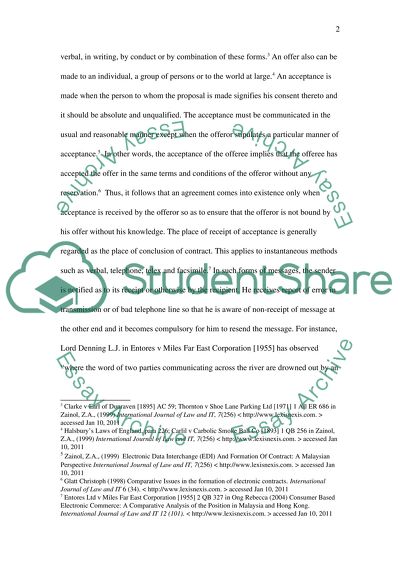Cite this document
(“Critically analyse the extent to which the classical doctrine on Essay”, n.d.)
Critically analyse the extent to which the classical doctrine on Essay. Retrieved from https://studentshare.org/miscellaneous/1574822-critically-analyse-the-extent-to-which-the-classical-doctrine-on-communication-of-acceptance-is-relevant-in-modern-contractual-relations
Critically analyse the extent to which the classical doctrine on Essay. Retrieved from https://studentshare.org/miscellaneous/1574822-critically-analyse-the-extent-to-which-the-classical-doctrine-on-communication-of-acceptance-is-relevant-in-modern-contractual-relations
(Critically Analyse the Extent to Which the Classical Doctrine on Essay)
Critically Analyse the Extent to Which the Classical Doctrine on Essay. https://studentshare.org/miscellaneous/1574822-critically-analyse-the-extent-to-which-the-classical-doctrine-on-communication-of-acceptance-is-relevant-in-modern-contractual-relations.
Critically Analyse the Extent to Which the Classical Doctrine on Essay. https://studentshare.org/miscellaneous/1574822-critically-analyse-the-extent-to-which-the-classical-doctrine-on-communication-of-acceptance-is-relevant-in-modern-contractual-relations.
“Critically Analyse the Extent to Which the Classical Doctrine on Essay”, n.d. https://studentshare.org/miscellaneous/1574822-critically-analyse-the-extent-to-which-the-classical-doctrine-on-communication-of-acceptance-is-relevant-in-modern-contractual-relations.


